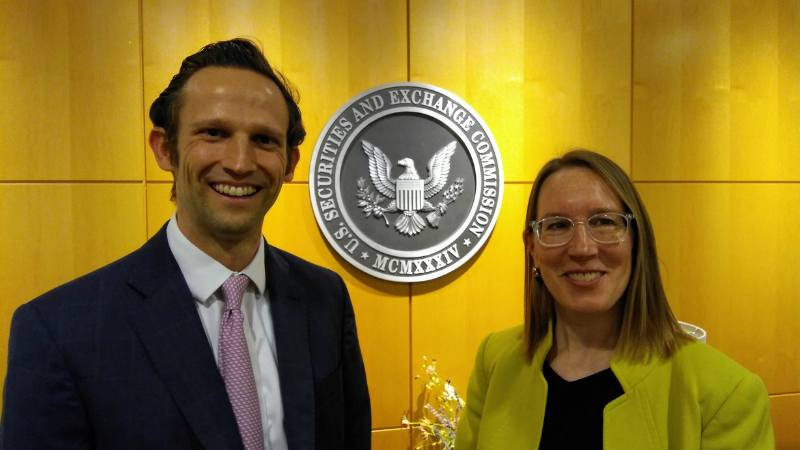Securities and Exchange Commission (SEC) Commissioner Hester Peirce recently said that although the SEC has encouraged crypto companies to bring their concerns to the SEC, the process is so slow that it could be driving business away.
The U.S. had been home to the second-highest number of crypto exchanges in the world as of 2019, but it has dropped to No. 5, behind Japan, Singapore, Slovenia and Canada.
"For me, because I've been at the SEC since 2018, to see no real movement, positive movement in that time is frustrating," Peirce said on an episode of the GM Podcast by Apple. "Now, of course, I think my colleagues have been trying very hard to go after some of the fraud that we've seen, and there have been enforcement actions that I think have been really important in this space. And I think there's been a lot of effort at getting more knowledge around crypto, so that's really positive."
The problem, she said is too much red tape at the SEC.
"I think another piece that we as regulators tend not to understand is that, you know, you can have a process whereby people come in and talk to you, but if someone is getting funding to build a project and your process takes, you know, two years, three years, four years, like at some point the person funding your project is going to say, ‘You know what, could you just go build that somewhere else, because it's not working in the U.S.’" she said. "So we've got to be a bit more pragmatic about that, too.”
Peirce said she believes open communication between regulatory agencies and members of the crypto community will help produce the most effective crypto regulation, but since she joined the SEC, she hasn't seen significant progress toward that regulation. She said that slow movement could contribute toward pushing crypto companies to establish their businesses in countries that have more clear regulation to avoid facing enforcement actions in the U.S. later.
FintaTech published a 2019 report by Crypto analytics provider Crystal, which found the U.S. was home to the second-highest number of crypto exchanges, behind only the U.K. Japan is now No. 1, with more than 32 registered crypto exchanges, and incentives to trade crypto such as tax-free Bitcoin transactions, the report found. Singapore is second, and it is "among the very few countries that support zero capital gains policy on cryptocurrency income," according to FintaTech. No. 3 Slovenia classifies crypto as a virtual currency, not as a security, and No. 4 Canada has official laws regulating crypto. The U.S. is No. 5, and crypto transactions are subject to various taxes.
Fragmented regulation by the U.S. means crypto exchanges operating in different states might be subject to different rules, according to Coin Ledger, a crypto tax software platform. A crypto exchange operating in New York is considered a transmission service, which comes with specific licensing requirements. Some U.S. traders have been unable to access certain major exchanges, and others have rolled out U.S.-specific exchange platforms. For U.S. traders, Coin Ledger recommends using Coinbase, Binance-US, CEX.io, or Kraken.

